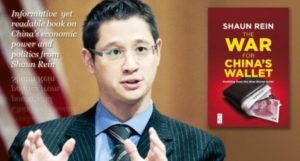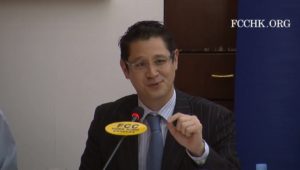 |
| Paul Gillis |
Paul Gillis:
The ban came about as a result of ZTE violating the terms of a settlement agreement entered into as part of its 2017 guilty plea for conspiracy to sell telecommunications equipment to Iran and North Korea that included American components that are forbid for export to those countries. ZTE agreed to pay a fine of $892 million and be under probation for seven years. An additional penalty of $300 million was suspended provided ZTE complied with the terms of the probation, which it is reported included the requirement for ZTE to fire four top executives and discipline 35 other employees. ZTE did fire the top executives, but instead of punishing the other employees it paid them bonuses.
ZTE was also required to undergo independent compliance audits related to its observation of export controls.
Because ZTE violated the terms of probation they have been banned from acquiring US components (including the Android operating system) and presumably has to pay the remaining $300 million fine. ZTE admitted the behavior, but argues that the penalty is too severe and is trying to negotiate a settlement that would allow the company to survive.
ZTE reports under Chinese accounting standards. Auditors Ernst & Young (EY) issued an audit report on the 2016 accounts on March 23, 2017. The agreement for the initial settlement became effective on March 22, 2017 and is reported in the 2016 accounts with the penalty of RMB 6.2 billion reported in other expense. The company stated that it was unlikely they would violate the probation agreement and have to pay the other US$300 million.
The details of when the bonuses were paid are publicly unavailable. Chinese companies usually pay bonuses at Chinese New Year, which was at the end of January in 2017 and in February in 2018. It seems most likely the offending bonuses were paid by February of 2018, before EY issued its audit report on the 2017 accounts on March 15, 2018.
So what does this have to do with accounting? The issue is whether EY should have known that there was serious doubt by March 15, 2018 as to whether ZTE could continue as a going concern. Should they have tested compliance with the probation agreement?
In its audit report EY states its responsibilities as including to:
Conclude on the appropriateness of the directors’ use of the going concern basis of accounting and, based on the audit evidence obtained, whether a material uncertainty exists related to events or conditions that may cast significant doubt on ZTE Corporation’s ability to continue as a going concern. If we conclude that a material uncertainty exists, we are required to draw attention in our auditor’s report to the related disclosures in the financial statements or, if such disclosures are inadequate, to issue a qualified opinion. Our conclusions are based on the audit evidence obtained up to the date of our auditor’s report. However, future events or conditions may cause ZTE Corporation to cease to continue as a going concern.
EY did not draw attention in their auditor’s report to any events or conditions that may have cast significant doubt on ZTEs Corporations ability to continue as a going concern. I think there was information available to EY (the payment of bonuses in violation of the agreement) that should have led to its questioning the ability of the company to continue as a going concern. I believe that auditors rarely ask these questions, although if this were a loan agreement with covenants, I am quite certain they would have tested compliance with the covenants.
The company got a clean opinion as of March 15, 2018, although only a couple of months later the survival of the company is in question. Should EY have blown the whistle earlier?More at the Chinaacountingblog.
Paul Gillis is a speaker at the China Speakers Bureau. Do you need him at your meeting or conference? Do get in touch or fill in our speakers' request form.
Are you looking for more experts to manage your China risk? Do check out this list.













